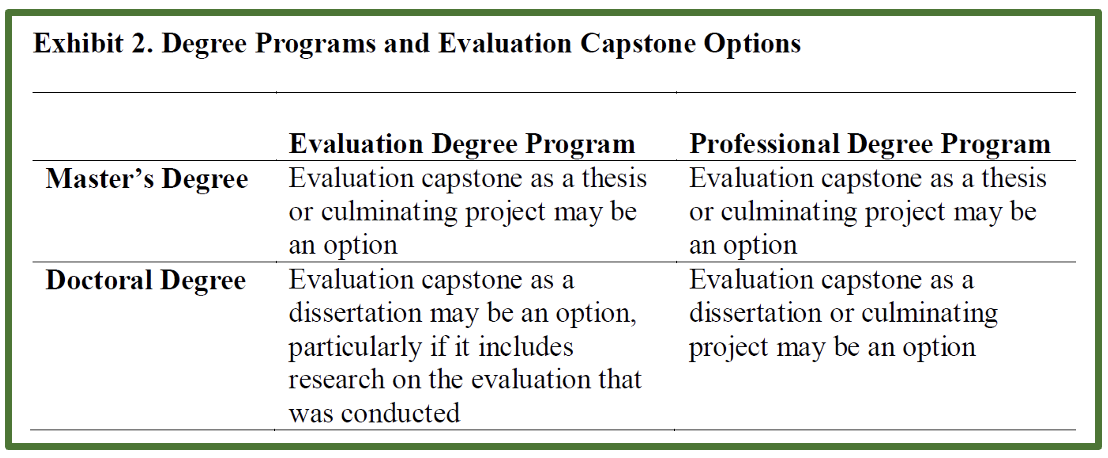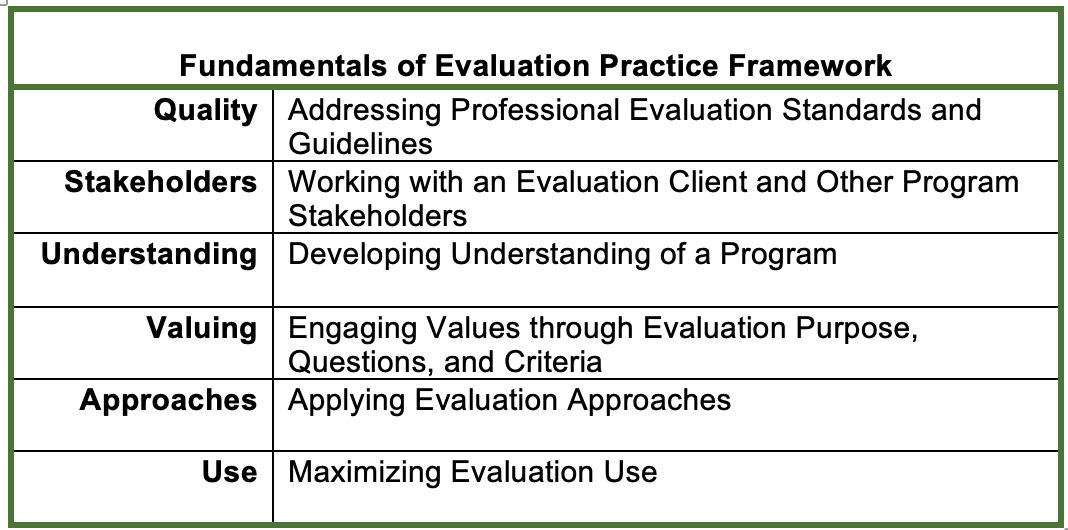Greetings from Tamara Walser and Mike Trevisan. Tamara is a Professor at the University of North Carolina Wilmington and Mike is a Dean and Professor at Washington State University. Over our years as faculty, we have observed increased interest in graduate evaluation capstones, where students complete an evaluation as part of their capstone experience.
Evaluation capstones include dissertations, theses, and culminating projects. The appeal of evaluation capstones is that they provide students with hands-on, real-world experiences to enhance their professional skills. However, there is a lack of guidance from the evaluation field on evaluation capstones.

Students in graduate degree programs in evaluation as well as students in graduate professional degree programs may have the option or an expectation of completing an evaluation capstone as part of degree requirements.

Evaluation capstones serve three main purposes:
- They are a learning process for students.
- They are a performance assessment for graduate programs and graduate schools.
- They are a service and responsibility to evaluation clients and other stakeholders.
The third purpose is a departure from traditional graduate research capstones.

To build capacity for evaluation capstones among students, faculty, and universities, we offer a framework, the Fundamentals of Evaluation Practice. The Fundamentals are those characteristics of evaluation that make it distinct from other forms of inquiry. Instead of fitting evaluation capstones into a traditional research capstone structure, we highlight the features of evaluation that make it a strong and challenging choice for dissertations, theses, and culminating projects.

Applying the Fundamentals Framework supports students in developing evaluator competencies, addressing standards and principles of the evaluation profession, and contributing to program, organization and community, and disciplinary knowledge. Applying this framework in the context of evaluation capstones is the focus of our upcoming Eval2021 workshop. We hope you will join us!
Rad Resources:
In our book on evaluation capstones, we reference many resources useful to students and faculty engaged in evaluation capstones, such as:
- AEA Evaluator Competencies, Guiding Principles for Evaluators, and Statement on Cultural Competence in Evaluation
- Facilitating Intentional Group Learning: A Practical Guide to 21 Learning Activities
- Evaluation Foundations Revisited: Cultivating a Life of the Mind for Practice
- Checklist for Assessing Your Evaluation Questions
- Actionable Evaluation Basics: Getting Succinct Answers to the Most Important Questions
- Evaluation Checklist Project
- Evaluation Capacity Building: Activities for Teaching and Training
Do you have questions, concerns, kudos, or content to extend this aea365 contribution? Please add them in the comments section for this post on the aea365 webpage so that we may enrich our community of practice. Would you like to submit an aea365 Tip? Please send a note of interest to aea365@eval.org . aea365 is sponsored by the American Evaluation Association and provides a Tip-a-Day by and for evaluators. The views and opinions expressed on the AEA365 blog are solely those of the original authors and other contributors. These views and opinions do not necessarily represent those of the American Evaluation Association, and/or any/all contributors to this site.
